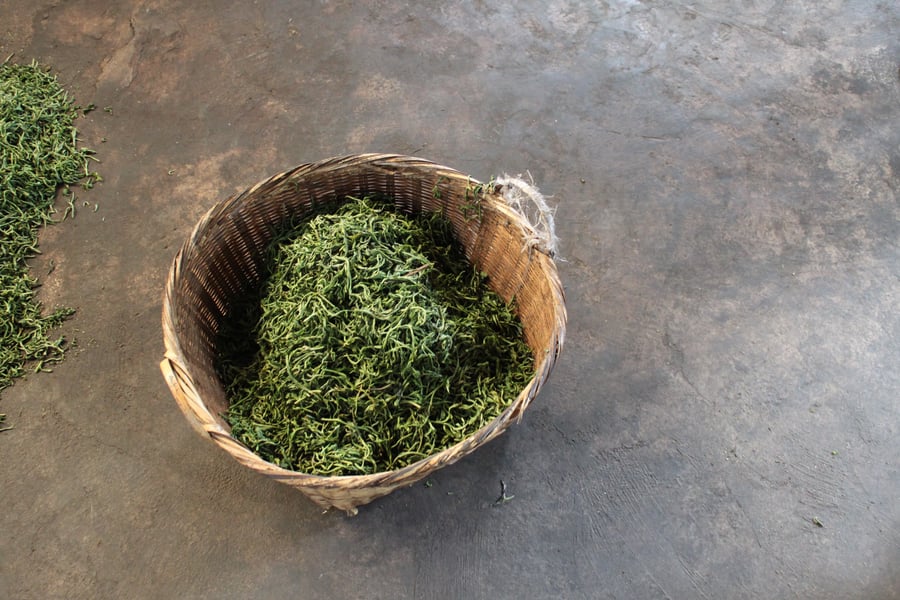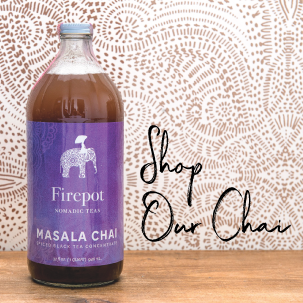If you're like many people, you look forward to relaxing with a steaming cup of tea. Most tea lovers enjoy every part of the process from brewing a pot and catching those first aromatics to sipping their favorite tea. It is no wonder that making and drinking tea has been a ritual throughout history. Knowing which teas to drink fresh, and which ones to age, will only enhance your own tea ritual. Here are our tips for tea care and storage for a fresh cup every time.
Generally speaking, most tea drinkers buy, collect, and stock up on their favorite teas, then slowly use them - often after the “best before” date. Although tea leaves don’t expire, the fresher the tea the more captivating the flavor and scent. If you find that delightful tea you purchased on vacation just doesn’t live up to your memory, it may be because of age.
Although tea expiration dates are a suggestion, older tea may lack the potency of fresher tea. Storing and preparing your tea correctly preserves the taste for longer so you can more fully enjoy each cup.
About Tea Expiration and Aging
Keep in mind that different types of tea age differently. Most black, red, oolong, and pu-erh teas mellow and gain complexity over time, if intentionally aged. If you would like to drink your teas fresh, try these tea storage tips so you may fully enjoy each cup.
Tea’s longevity depends on a few factors such as the type of tea, whether it is fully fermented or not, and how intact the tea leaves remain.
- Green Tea: Green tea is steamed or pan-fired after harvesting to prevent oxidation. This is why it retains more of the antioxidants and essential oils from tea leaves, the distinctive flavor and the green color. Green tea typically tastes best when drunk within 12 months of purchase because these delicate oils dissipate with time and contact with oxygen.
- Red or Black Tea: Red tea, or “black tea” as it is commonly known in the West, is fully oxidized. As a result, it has more developed tannins, body and strength than green tea. When stored correctly, black tea will only gain complexity and depth over time. If you want to store it casually on your countertop, you can expect it to last up until one year after harvest.
- Oolong Tea: Oolong tea can be consumed fresh or beautifully aged over many years. Being partially oxidized to varying degrees depending on the style in which it was made, oolong tea, like red tea, will only gain complexity and depth over time. The leaves are typically rolled, more tightly rolled leaves tend to stay fresh longer than more loosely rolled leaves.

Tea Storage Tips
In general, exposure to heat, light, moisture, and air degrade your tea. So look for ways to keep your tea leaves dry, cool and in the dark!
- Store your tea in an opaque, air-tight bag, tin or another container. Avoid glass or other clear containers for the best results.
- Keep it out of the light and away from heat. In other words, don’t store your favorite tea near your oven or in a sunny window.
- Keep it away from other items with strong odors like coffee or spices.
- If you are serious about your tea, consider a tea cabinet, away from the kitchen and all of the lights, scents and moisture fluctuations.
To refrigerate or not to refrigerate?
Some tea connoisseurs like to keep tea in an air-tight container in the refrigerator. If moisture levels are kept low and constant, this can be a good option for very delicate Japanese green teas or other spring green teas. If monitoring the consistency of moisture levels in your refrigerator sounds like a stretch, just keep it in an air-tight tin in your tea cabinet.
Aging Tea
Aging tea is a separate conversation altogether from storage. If you buy tea for aging and are interested in investing in tea to be enjoyed over time, know that any tea can be aged with proper storage. If you've ever opened a bottle of wine, only to go back later for a second glass, you may have noticed that the taste is different. Like wine, the chemical changes in tea that take place over time due to oxidation and fermentation will transform it into something new and beautiful. It's a fascinating process, one that opens up new flavor profiles enabling you to enjoy your tea for a long time.
Nevertheless, purchasing small batches of tea seasonally and drinking them within a year is, we believe, your best bet for most teas. This season’s tea is usually the freshest and most aromatic. By taking good care of your tea, you protect your investment and enjoy every sip!







Leave a comment
Comments will be approved before showing up.